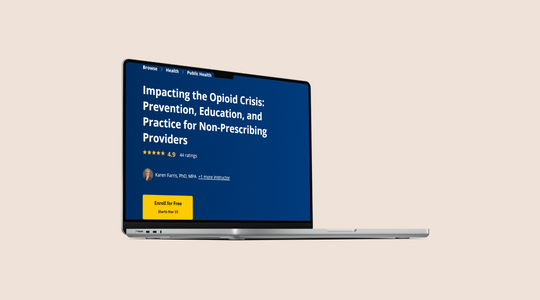This free, 16-hour CE course will empower non-prescribing providers to directly impact the opioid epidemic through increased knowledge and tools to transform practice and policies.

As a learner, you have the ability to select any or all of the 6 modules and topics that interest you.
Accreditation Council for Continuing Medical Education
The University of Michigan Medical School is accredited by the Accreditation Council for Continuing Medical Education (ACCME) to provide continuing medical education for physicians.
The University of Michigan Medical School designates this enduring material for a maximum of 16.00 AMA PRA Category 1 Credit(s)™. Physicians should claim only the credit commensurate with the extent of their participation in the activity.
Maintenance of Certification in Anesthesiology™ program and MOCA® are registered trademarks of The American Board of Anesthesiology®. This activity contributes to the CME component of the American Board of Anesthesiology’s redesigned Maintenance of Certification in Anesthesiology™ (MOCA®) program, known as MOCA 2.0®. Please consult the ABA website, www.theABA.org, for a list of all MOCA 2.0 requirements.
Released for CME Credit on 2/16/23, with credit available through 1/31/26.
Michigan Social Work Continuing Education Collaborative
This training/event has been approved by the NASW-Michigan Chapter for 16 social work CEs: Approval number 20250101-CA-MIOPEN.